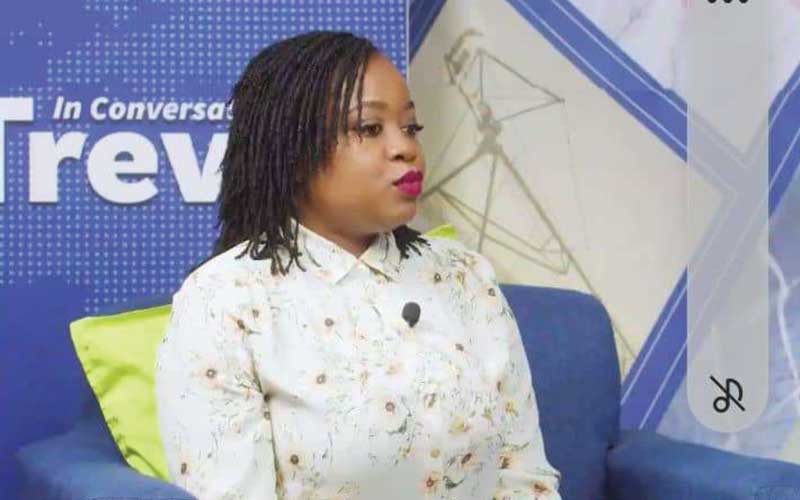
Audrey Simbiso Chidawanyika, a global innovator on education, strategy and digital transformation, says growing up in a less privileged background pushed her to dream big.
Chidawanyika (AC) shared her story with Alpha Media Holdings chairman Trevor Ncube (TN) on the platform In Conversation with Trevor.
She said growing up she was involved in a lot of family initiatives to put food on the table such as selling on the streets.
Below are excerpts from the interview.
TN: Audrey Simbiso Chidawanyika, welcome to In Conversation With Trevor.
AC: Thank you so much Trevor for having me. This is a moment of a lifetime.
I really follow the conversation and to be here on the other side [is a] a testament that dreams actually come true.
- In Conversation with Trevor: Chisamba: Let’s be proud of ourselves
- In Conversation with Trevor: ‘I tried to change Zanu PF from within’ – Margaret Dongo
- In Conversation with Trevor : How car crash changed my life
- In Conversation With Trevor: ‘We lost our humanity’
Keep Reading
TN: Dreams actually come true, they do come true.
So, tell me, when you were a cashier at Innscor and working at Meatbox long ago, did you ever think that this is where your career would be?
AC: To think what I am doing right now would be, would be a lie, but I did know that I was going to be someone who was impacting the world because I already had a heart for the world even when I was young.
So going to work as a cashier at Innscor was to sort of like fuel those dreams that I had to become somebody.
I knew that my parents would not afford to take me through university because I was coming from a struggling background.
So, I had to work straight after high school so I could raise fees for university and also to buy the gadgets that I would use to be able to advance my education.
I knew that I had to go through that path so that I could support my education.
Meatbox as well, it was in the middle of my education, my bachelors at the University of Zimbabwe, and I had hit you know a hard time in terms of finances.
I was not able to support my education, so I had to have a gap year so I could go and work and I could raise my fees.
Also, because Meatbox was advancing something that I was really passionate about, which is entrepreneurship development and changing lives and solving the problems that people had in our communities, I wanted to be a part of that, be a part of something transformational but at the same time raising my fees so I could further my education which is something that I managed to do.
TN: Wow. You talk about a struggling background. Talk to me about that, about your upbringing, having to pay for yourself fees. Let us go there if we may?
AC: All right. So I will just take you 30 years back.
So, I was born 30 years ago, to my parents who I really appreciate because they did all they could with the resources that they had to make sure that we had a life.
It was not easy growing up, you know we started off leaving in Budiriro, we were renting there and then we had to move to Mabvuku-Tafara when our grandparents passed on and we had to move there to stay at the grandparent’s home in Mabvuku.
This was to just kind of like alleviate the situation from having to pay rentals and also take children to school for my parents.
So, we moved to Mabvuku-Tafara, and it was not easy because my parents were not employed at that time.
My father had a shop [in] which he was doing some hairdressing, so he's a barber, and my mother was not working [as] she dropped out of school.
We were doing a lot of family initiatives to sustain our lives, so we had to sell and I remember in Mabvuku I know how to sell boiled maize at our local stores at Kamhunu Shopping Centre.
I know how to sell boiled sweet potatoes as well with some tea to the people that were servicing that area.
I enjoyed it a lot because I knew that it was for a cause and that cause was for us to have food on the table, for us to be able to go to school and also to just have a decent life which was okay for us.
It was not anything over the top, but we knew that as children we had to step in and we also had to step up if we wanted to go to school because we were understanding the situation that our parents were in.
And it came with a lot of lessons and a lot of pains as well.
I do not really choose to zero in much on the pains that come with that experience, but I choose to amplify the lessons that I drew from that...
TN: What are those lessons? Shall we go there? What are those lessons?
AC: So because we were doing a lot of entrepreneurial activities, of course at subsistence level, because they never really took off.
We would start something and then the money that would come from there we would use it to pay fees and we were back on the ground again, we were starting to look for you know start-up capital as well to push.
So, all the money that we were making was going towards something, so we were constantly on the ground.
But for me when I was then growing up I said with so much initiatives that had potential to scale but because my parents did not have the knowledge on how to effectively run a business I also did not have the knowledge at that time.
So that's why we were constantly just at that stunted growth, just being able to cover...
TN: Survival.
AC: To cover but it did not really take off.
So that is why now I am so passionate about entrepreneurship, that is why I am passionate about innovation, and the work that I do is not for the elite but for those that are marginalised who I can relate to who are in the same situation that I grew up in, who also have children with so much potential just like me who could be affected if their parents are not able to sustain their education.
That is why I am advancing global education and entrepreneurship in innovation, business development and digital transformation in marginalised communities, because I want them to move from survival to significance.
I want these people to be equipped with the tool sets, the skill sets and the mindsets to grow their businesses and scale them into profitable enterprises, into meaningful enterprises that are not just having an income or having a profit, but actually changing the lives of people.
So that was one lesson that I drew from that and hence why I started Simbiso Jump Start Initiative to be able to help small businesses grow in scale.
Another lesson that I took from there was just the confidence to be able to sell.
I remember my mom would always encourage us by saying the person that would sell more would have a prize, at the end of the day will get a prize for selling more.
So that could [have been] a bottle of Coca-Cola, because in our household that was Christmas.
So, my mom would say okay so when everyone else was done with dinner and some just drinking water to wash down you have your bottle of Coca-Cola and you [were] the best seller of the day.
That experience taught me how to sell, how to be confident in my own skin because we had to go out there and be able to sell.
You wanted to be the person that [was] selling more.
I remember there was a time, because it was not just the maize cobs or the sweet potatoes, we also had a vegetable store, so we had shifts with my siblings and my strategy was to greet the customers in English so the parents would now then say go and buy from the vegetable store where there's that young girl who speaks in English to us.
I also remember I was also selling mangoes as well like in the lanes, like the streets [of] Mabvuku-Tafara and there was this particular lady, who had her child who was in school and she would say how many mangoes do you have in your basket and I would say I probably have 40 to 50.
She would say okay I am buying all of them because I just want you to sit down and help my child with their homework.
So instead of now being in the scorching heat and having to you know endure walking the long distance selling the mangoes I knew that I just had to go to her house.
She would get all of them, she would pay for them and I would just sit there and help her child with her homework. Yeah.










